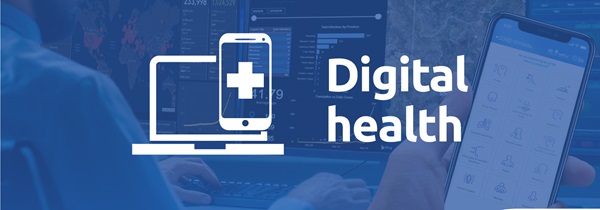
Health experts, government leaders and private sector innovators have called for urgent and coordinated investment in digital innovation and public-private partnerships to revolutionise healthcare delivery across Africa.
The call was made at the just-concluded Africa Primary Health Care Forum (APHCF) in Abuja, where stakeholders warned that without bold and strategic action, the continent risks falling further behind in the global race for Universal Health Coverage (UHC).
The high-level forum, themed “Reimagining Primary Health Care for Universal Health Coverage and Health Security in Africa,” brought together representatives from the African Union (AU), World Health Organization (WHO), Africa CDC, development partners, private innovators and civil society to discuss new strategies to close access gaps and strengthen health systems. It aligns with the WHO-led 1.5 billion Euro Health Impact Investment Platform and broader continental efforts toward health equity and resilience.
The director-general of the West African Institute of Public Health, Dr. Francis Ohanyido set the tone by declaring that Africa stands at a tipping point in its healthcare journey.
“We must either harness digital tools to transform how care is delivered or risk continuing the cycle of inadequate access and preventable deaths. Innovation is not optional. It is now urgent,” Ohanyido said.
Leading voice in health policy and services management, Dr. Kofi Akohene Mensah presented ongoing work on a continent-wide Primary Health Care Utilisation Guidelines aimed at harmonising digital PHC delivery across Africa’s 55 AU member states. The framework, he said, revolves around eight key pillars: electricity, connectivity, data systems, GPT integration, human resources, electronic medical records and digital literacy.
“This is not just another document. It is a practical, interoperable tool that countries can immediately adapt and implement. We are pushing for solutions that are simple, usable, and scalable,” Mensah noted.
Africa CDC’s regional director for West Africa, Dr. Jean Nsengimana echoed the urgency of building foundational infrastructure before introducing complex digital tools.
“You cannot talk about electronic records or e-prescriptions without first fixing power, internet connectivity, and digital literacy. These are the roots of digital transformation,” Nsengimana said, commending Nigeria’s advances in e-pharmacy and mobile health services while advocating for accelerated rollout across the continent.
In a compelling contribution, the founder of Avenue Healthcare in Kenya and chair of the Africa Health Business Network, Dr. Amit Thakker stressed that successful health reform depends on strategic public-private sector alignment. He challenged the view that profit-driven enterprises compromise care.
“The public sector cannot do it alone. We need a viable mix where governments provide the enabling environment and private actors bring in innovation, efficiency and reach,” he said.
Thakker urged African governments to learn from the success of mobile banking to leapfrog traditional brick-and-mortar health infrastructure with digital solutions such as telemedicine, doorstep diagnostics, and virtual consultations.
“Let’s move from a model of building clinics to one of bringing clinics to people through mobile and digital technology,” he said.
Highlighting real-world impact, the director of partnerships and programmes, Ngozi Ota showcased “Plantout,” a microplanning digital tool that has reduced the planning time for immunisation campaigns from five weeks to just 30 minutes.
“When combined with geospatial tracking, Plantout ensures no community is left behind. This is what responsive, people-centred innovation looks like,” she said.
The director of partnerships and growth at Reach Digital Health, Carlos Guerrero stressed the need to integrate community-generated data into national health information systems. Drawing from South Africa’s Home Connect Initiative, Guerrero said real-time feedback from citizens often exposes service gaps long before official statistics do.
“Citizens are not just beneficiaries; they are data producers and watchdogs. The systems must reflect their voices,” he said.
WHO’s national professional officer, Dr. Nkiru Ukor called for deliberate equity-focused digital strategies. She said Africa must avoid creating health systems that serve only the connected elite.
“Digital health must narrow gaps, not widen them. Inclusion and accessibility must be at the heart of every deployment,” she said.
Ukor referenced the WHO’s Global Strategy on Digital Health 2020 – 2025, which promotes collaboration, innovation and workforce development as essential pillars of health transformation.
The forum closed with consensus that the future of African healthcare hinges on three imperatives: digitising primary healthcare delivery, creating adaptable policy environments and embedding public-private partnerships into the fabric of health governance.
“Africa can no longer afford to build brick by brick. We must build smart, build fast and build together,” a joint statement by participants declared.
They stressed that the continent’s health future will be defined not by the scale of aid received, but by the speed and effectiveness of innovations implemented.
Science Nigeria reports that the forum’s recommendations are expected to inform upcoming national policies and investment frameworks across AU member states, laying a new foundation for health security and inclusive UHC.

